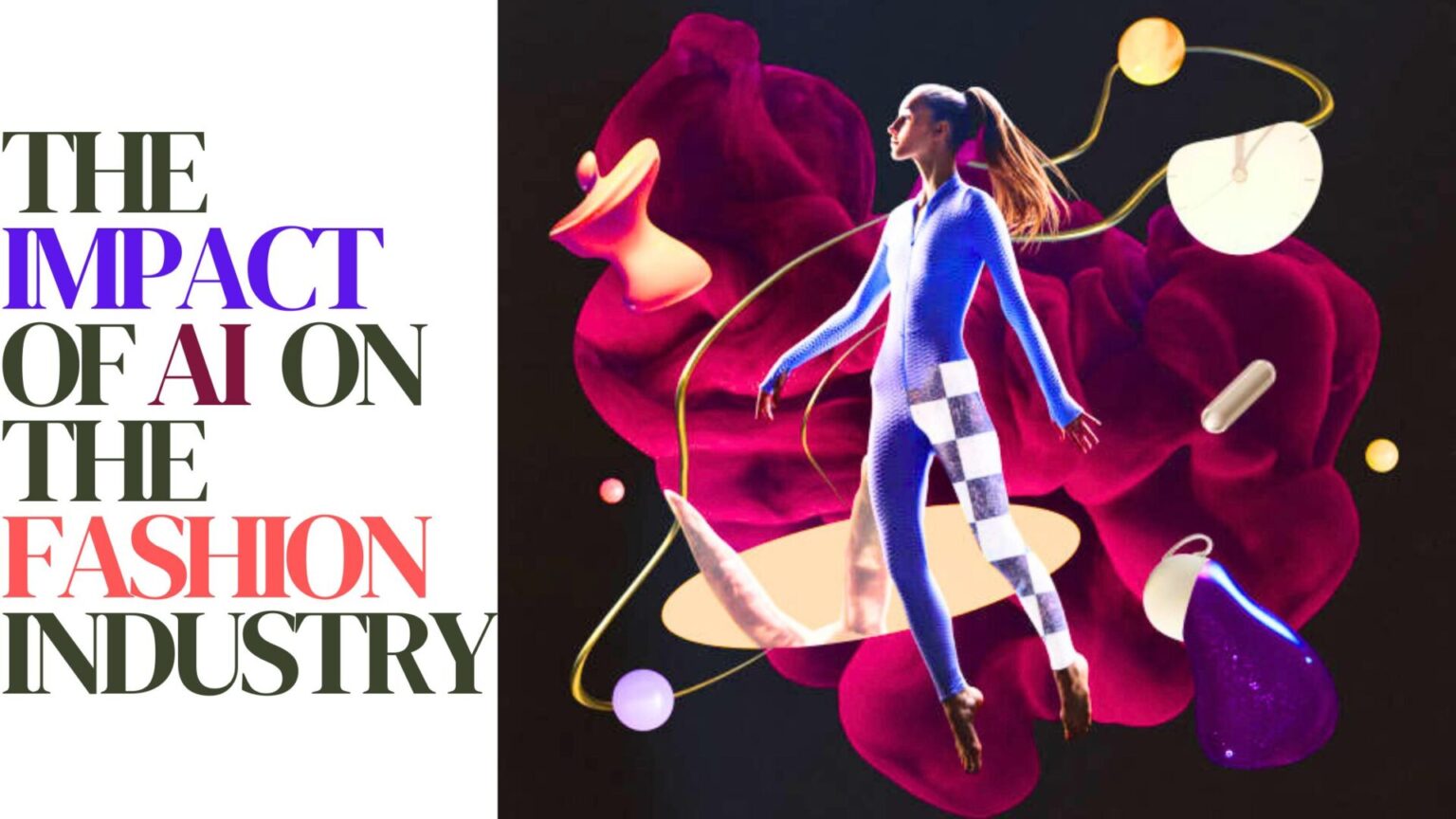Introduction:-
The Revolution Unveiled:The Impact of AI on the Fashion Industry

The fusion of artificial intelligence (AI) and the fashion industry has sparked a transformative wave, redefining the way fashion is designed, produced, and consumed. This article delves into the profound impact of AI on the fashion landscape, shedding light on its innovative applications and the implications for industry professionals and fashion enthusiasts alike.
AI-Powered Design Tools AI has revolutionized the design process, empowering fashion designers with advanced tools for trend analysis, fabric selection, and even virtual prototyping. Through machine learning algorithms, designers can expedite the creative process, optimize designs for sustainability, and forecast trends with unprecedented accuracy.
Personalized Shopping Experiences AI has personalized the shopping journey, offering tailored recommendations based on individual preferences, purchase history, and even social media interactions. Virtual stylists and AI-driven fitting technologies are enhancing customer satisfaction and revolutionizing the retail experience, ultimately reshaping consumer behavior and expectations.
Sustainability Initiatives AI is instrumental in driving sustainability in fashion. From optimizing the supply chain to developing eco-friendly materials, AI is propelling the industry towards a more sustainable future. Through data analytics and predictive modeling, AI enables brands to minimize waste, reduce environmental impact, and meet the growing demand for ethically produced fashion.
The Shift in Consumer Behavior AI has redefined consumer behavior, influencing purchasing decisions and reshaping brand interactions. From virtual try-ons to augmented reality-powered shopping experiences, AI technologies are fostering a new era of consumer engagement, blurring the lines between digital and physical retail spaces.
Practical Tips for Industry Professionals For fashion professionals seeking to leverage AI, embracing data-driven decision-making, investing in AI-powered design tools, and prioritizing sustainable practices can position them at the forefront of industry innovation. Embracing AI with a strategic mindset can propel businesses towards competitiveness and relevance in the evolving fashion landscape.
Discuss the impact of AI on retail fashion industry?
AI Impact on Retail Fashion Industry

In recent years, AI has significantly transformed the retail fashion industry, revolutionizing various aspects of the business. Here’s how AI is impacting the retail fashion industry:
- Personalized Shopping Experience
- AI-powered recommendation systems analyze customer data to offer personalized product recommendations, enhancing the shopping experience and increasing customer satisfaction.
- Demand Forecasting
- AI algorithms process vast amounts of data to forecast fashion trends and consumer demand, enabling retailers to optimize their inventory and minimize excess stock.
- Enhanced Customer Service
- AI chatbots and virtual assistants provide round-the-clock customer support, answering queries, offering styling tips, and guiding customers through their purchase journey.
- Supply Chain Optimization
- AI helps in optimizing supply chain operations by predicting supply and demand fluctuations, improving procurement processes, and streamlining logistics.
- Visual Search and Image Recognition
- AI enables visual search and image recognition, allowing customers to search for products using images, thereby improving search accuracy and driving conversions.
- Customization and Design
- AI facilitates the creation of personalized clothing and accessories through data analysis, enabling brands to offer customizable products tailored to individual preferences.
- Dynamic Pricing
- AI algorithms analyze market conditions, competitor pricing, and consumer behavior to dynamically adjust prices, maximizing profits and competitiveness.
- Sustainable Practices
- AI is aiding the industry in implementing sustainable practices by optimizing processes, reducing waste, and developing eco-friendly materials.
In conclusion, AI’s impact on the retail fashion industry has been profound, optimizing operations, improving customer experiences, and driving innovation. As AI continues to evolve, its influence on the industry is expected to grow even further, shaping the future of fashion retail.
Discuss AI influence on consumer behavior?
AI Influence on Consumer Behavior
Artificial Intelligence (AI) has significantly influenced consumer behavior across various industries. Its impact can be observed in the following ways:
- Personalized Recommendations
- AI analyzes consumer data to provide personalized product recommendations, influencing purchase decisions and enhancing the overall shopping experience.
- Enhanced Customer Service
- AI-powered chatbots and virtual assistants provide instant and personalized customer support, influencing consumer satisfaction and brand loyalty.
- Predictive Analytics
- AI algorithms analyze vast amounts of data to predict consumer behavior, enabling businesses to anticipate trends, tailor marketing strategies, and optimize product offerings.
- Voice and Visual Search
- AI-driven voice assistants and visual search technologies have changed how consumers discover and interact with products, influencing search and purchase patterns.
- Dynamic Pricing
- AI enables dynamic pricing strategies based on consumer behavior, market trends, and competitor pricing, influencing purchasing decisions and price sensitivity.
- Fraud Detection and Security
- AI enhances security measures by detecting and preventing fraudulent activities, instilling trust and confidence in consumers’ online interactions.
- Hyper-Personalization
- AI enables hyper-personalized marketing campaigns, content, and product offerings, influencing consumer engagement and fostering brand affinity.
- Conversational Commerce
- AI facilitates conversational commerce through messaging apps and social media platforms, influencing consumer interactions and purchase preferences.
In summary, AI has fundamentally reshaped consumer behavior by personalizing experiences, predicting preferences, and redefining how consumers discover and engage with brands and products. As AI technology continues to advance, its influence on consumer behavior is expected to further evolve, driving more tailored and intuitive consumer experiences.
Emphasis AI role in sustanibility
AI’s Role in Sustainability
Artificial Intelligence (AI) plays a pivotal role in driving sustainability efforts across various industries, contributing to environmental conservation, resource optimization, and eco-friendly practices. The influence of AI on sustainability is evident in the following areas:

- Resource Optimization
- AI algorithms analyze and optimize energy usage, water consumption, and raw material utilization in manufacturing processes, leading to reduced waste and more sustainable resource management.
- Supply Chain Efficiency
- AI enhances supply chain management by predicting demand, optimizing logistics, and minimizing carbon emissions, thereby promoting sustainable and environmentally-conscious practices.
- Renewable Energy
- AI facilitates the efficient integration and management of renewable energy sources by forecasting energy production, optimizing grid operations, and enhancing overall energy sustainability.
- Smart Buildings and Cities
- AI enables the development of smart, energy-efficient buildings and cities by optimizing heating, cooling, and lighting systems, contributing to reduced energy consumption and lower environmental impact.
- Eco-Friendly Agriculture
- AI-driven precision agriculture promotes sustainable farming practices by optimizing irrigation, crop monitoring, and resource allocation, leading to increased productivity with minimized environmental impact.
- Waste Management
- AI is utilized in waste sorting, recycling optimization, and circular economy initiatives, contributing to reduced landfill waste and the promotion of sustainable waste management practices.
- Climate Change Mitigation
- AI models and simulations aid in climate change research, enabling better understanding and prediction of environmental changes, thereby supporting informed decision-making for mitigation efforts.
- Environmental Monitoring
- AI technologies, including remote sensing and data analytics, contribute to real-time environmental monitoring, biodiversity conservation, and ecosystem preservation.
In conclusion, AI serves as a catalyst for sustainable practices by optimizing resource utilization, driving energy efficiency, and fostering environmentally-friendly innovations across industries. As AI continues to advance, its role in sustainability is expected to expand, further contributing to a more sustainable and eco-conscious future.
Conclusion
The integration of AI into the fashion industry is not merely a trend; it is a revolutionary force driving unprecedented innovation and sustainability. As AI continues to permeate every aspect of the fashion journey, from design to retail, its impact will continue to redefine industry standards, consumer experiences, and the very essence of fashion itself.
By understanding and harnessing the potential of AI, fashion professionals and enthusiasts can navigate this transformative era and contribute to a future where technology and style seamlessly intertwine.






